Dragging yourself to thedoctorcan seem like an impossible task when you’re ill. Calling to make an appointment, traveling to the clinic and making your way back home is extremely overwhelming when you’re feverish, congested, achy and just want to sleep. But the cruel reality for most of us is that, if we want to get paid for our sick days, we better provide adoctor’s note.
Sometimes, however, this policy can backfire on an employer. Below, you’ll find a story that one womansharedon the Malicious Compliance subreddit detailing how her manager’s demand for a sick note ended up getting her additional days off and payment for past hours she had worked.
Getting a doctor’s note for work when you’re ill can be an exhausting task

Image credits:Polina Tankilevitch / pexels (not the actual photo)
But it was worth it for this woman after her manager was forced to give her additional days off and more income than she expected

Image credits:voronaman111 / envato (not the actual photo)

Image credits:pimilpimil
“Always read your contract thoroughly before signing it, and know your rights”
We were also curious what her manager thought of all this. “[She] felt defeated after learning that I will be having extra days for rest, but she eventually agreed, as it can cause serious offense if not honored. As with me, reporting about my overtime, they had tried to speak to me to ask why I had reported them. I explained to them briefly, and since labor claims had called them, they were forced to pay my extra hours along with my colleagues.”
The OP also noted that this is the only company she’s worked for with these issues, and as far as she knows, they are still operating this way. And as for whether or not the manager learned her lesson, Pimilpimil says, “She admittedly knew the law, however she said she was just following the company protocols. She left the company a year later for a different reason.”
Finally, she shared some advice for any employees in similar situations. “Always read your contract thoroughly before signing it, and know your rights. There should always be a work-life balance.”
Visiting a doctor’s office just for a note can be a huge hassle for workers who should be at home resting

Image credits:Tima Miroshnichenko / pexels (not the actual photo)
Unfortunately, manybossesdon’t seem to trust their employees enough to simply take their word for it and accept that they are ill if they hear it over the phone. There has to be solid proof. According to theGold Law Firm, employers in the United States are allowed to request that their workers provide a doctor’s note any time they take a sick day.
These notes should only provide basic information about the patient, the time of the appointment and how many days the doctor recommends they stay home from work. Your boss is not entitled to know your medical history or even know what exactly is wrong with you on that given day.
As common asdoctor’s notesare though, many workers and physicians argue that they’re not a necessary practice. Dr. Kay Dingwell, an emergency room physician in Canada, toldCBCthat patients really shouldn’t be spending the entire day in an urgent care clinic when they should be at home recovering. She also noted that the requirement to have sick notes is a labor issue, and it can be a waste of doctors’ time.
Plus, visiting a doctor is an additional cost for many employees, especially if they don’t have insurance. It’s not fair for them to have to spend $50 and their entire day visiting a doctor just to prove why they couldn’t show up at their retail job one day. And in the UK,Davidson Morrisnotes that proof from a doctor is not required when employees miss seven or fewer consecutive days of work. They can “self-certify” that they were ill upon returning to the office.
Many bosses believe that their employees take advantage of sick day policies

Image credits:Karolina Kaboompics / pexels (not the actual photo)
But why do we need to have sick notes in the first place? Don’t our bosses trust us? Well, according to PWC’s2024 Trust Survey, 86% of executives claim that they “highly trust” their workers. However, only 60% of employees actually feel like their bosses trust them. And when it comes to taking sick days, many employers seem to have no problem with their teams coming in ill.
At the same time, some bosses believe that allowing employees to work from home is a fair alternative to giving them an actual sick day. They might ask employees how sick they actually are or if they would be willing to work from home, rather than accepting the fact that they need a day off. Resume Builder also found that 27% of managers believe encouraging sick employees to work is actually beneficial for the company’s productivity.
Readers applauded the employee for her malicious compliance, and she joined in on the conversation
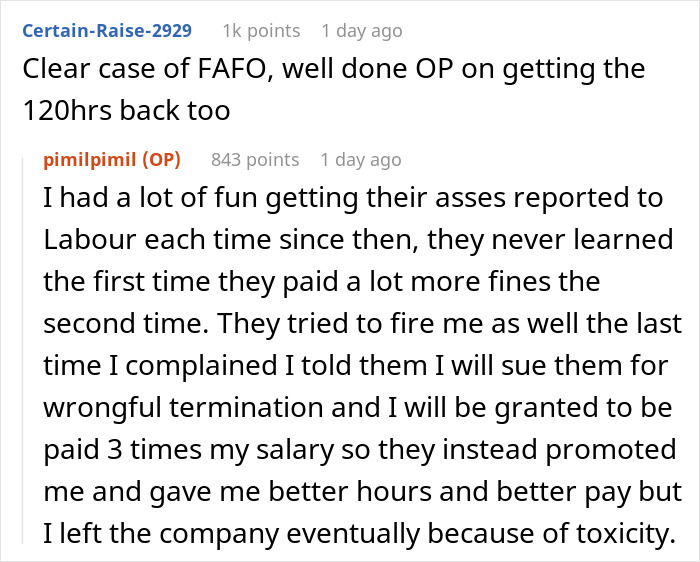
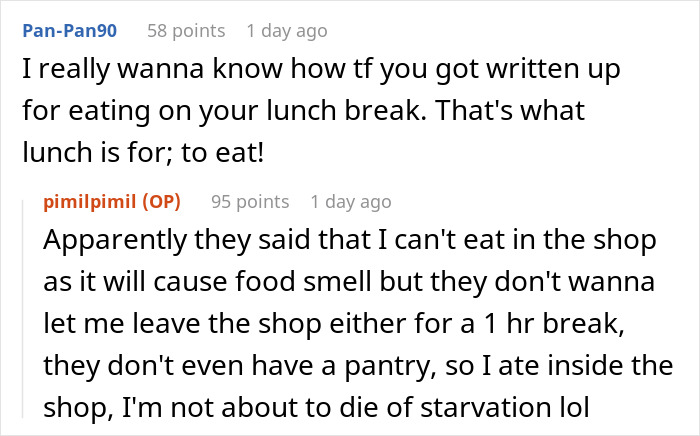
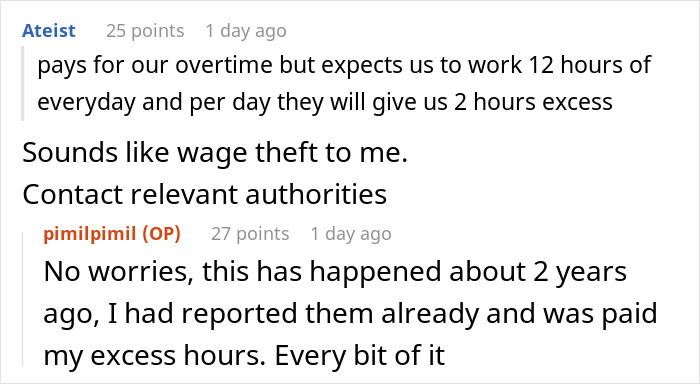
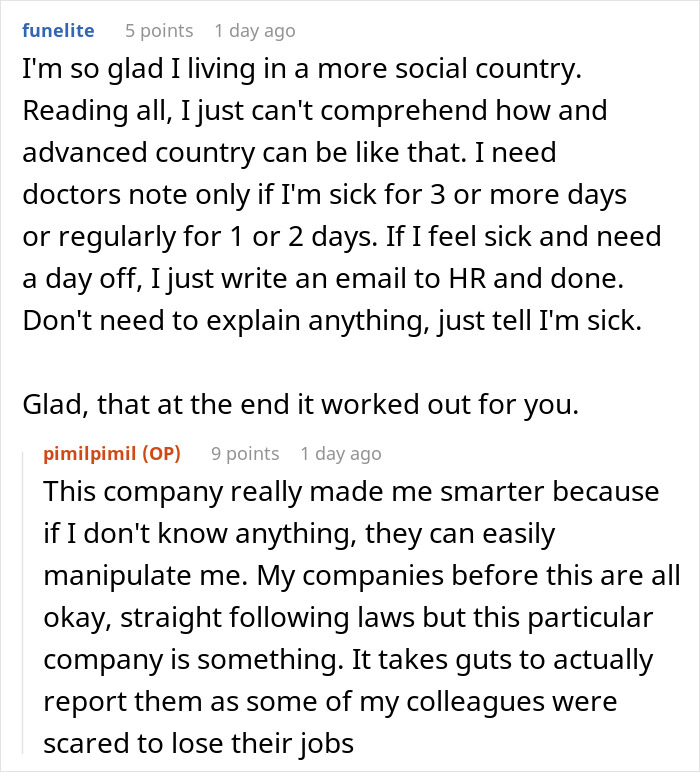
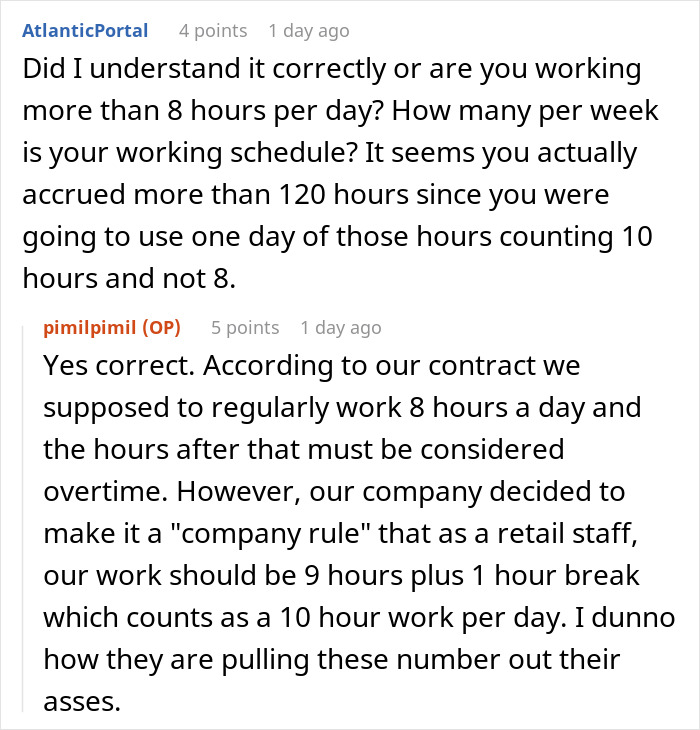
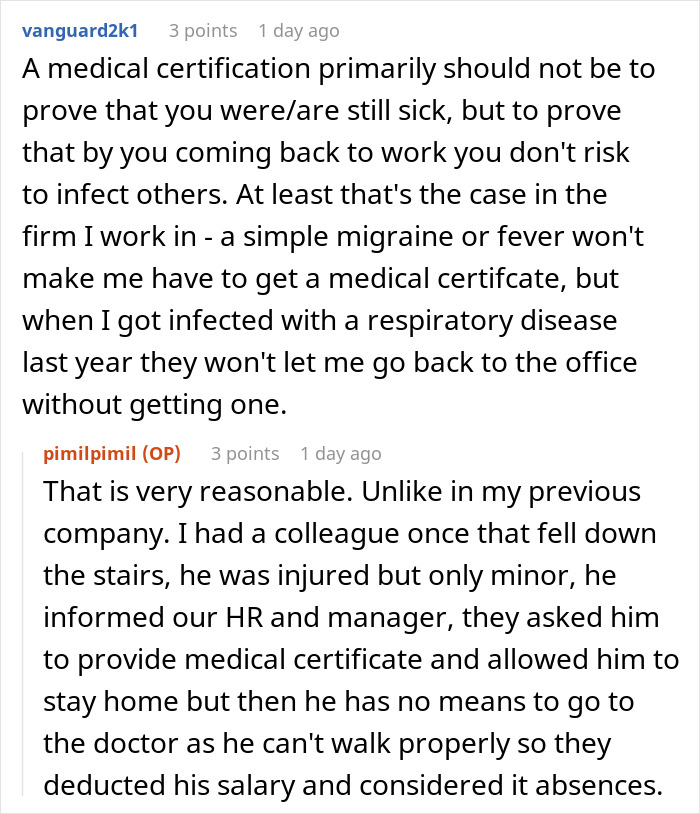
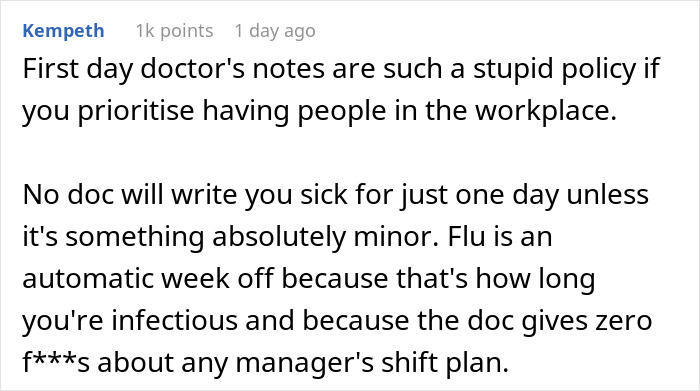



Some even had similar stories of their own to share
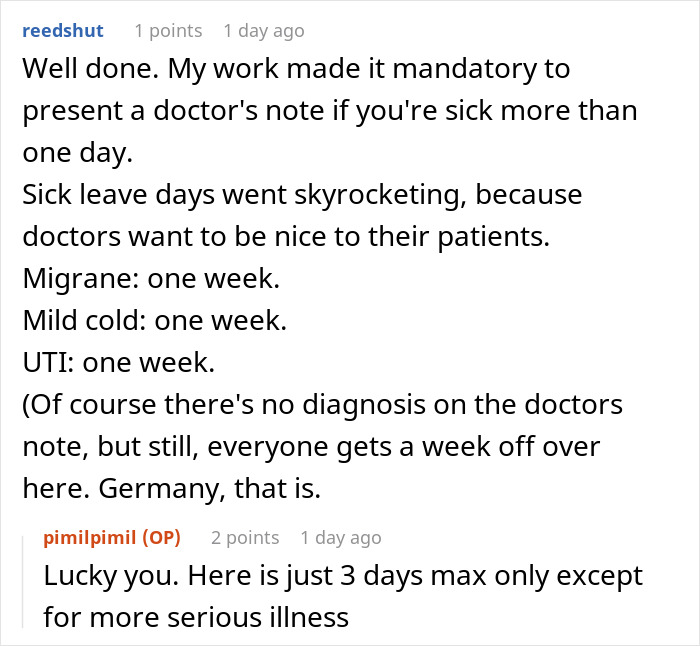
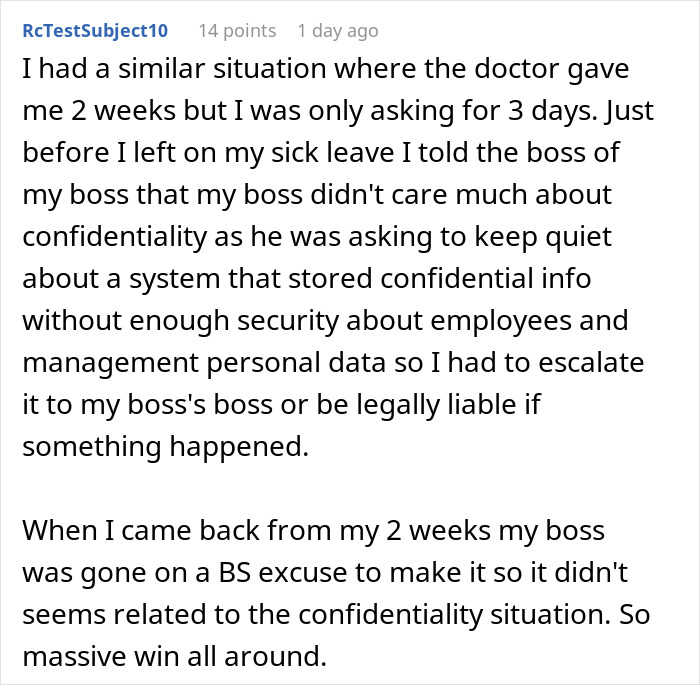
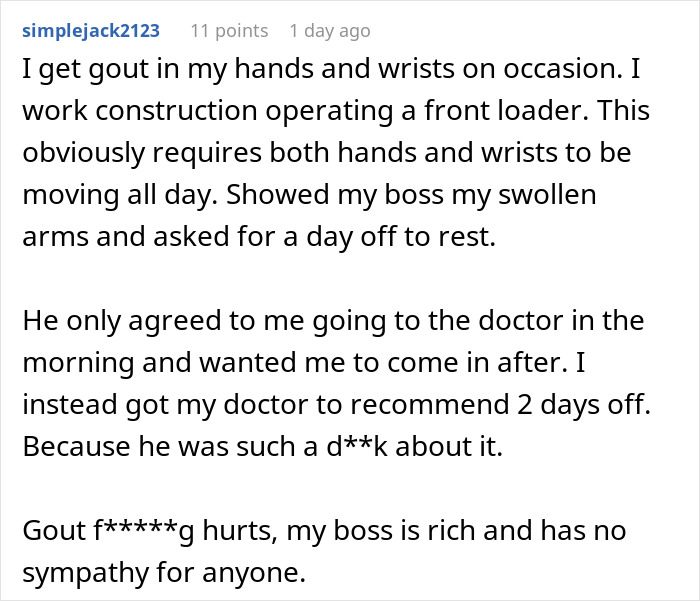
Thanks! Check out the results:Gabija Saveiskyte
Indrė Lukošiūtė
Work & Money